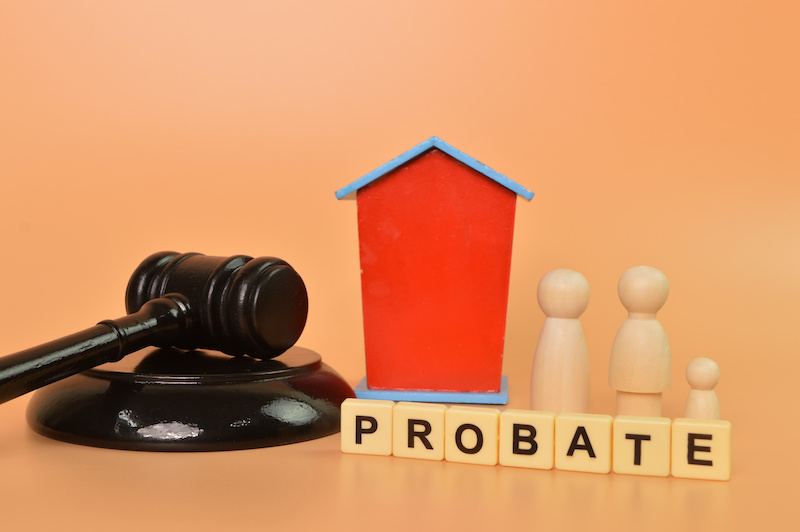
Left unaddressed, estate planning myths create serious trouble for loved ones. This often leads to intrafamily conflict, permanently damaged relationships, and lengthy and expensive court battles. In this blog post, we examine and dispel common estate planning myths.

Estate Planning Myth #1: I did my estate plan a couple of years ago. I’m good!
If you created an estate plan with help from an experienced estate planning attorney, you are in good shape. However, life moves quickly. After only a couple of years, life changes and significantly impact estate plans. So, don’t fix it and forget it.
Life Changes

- Children marry and reproduce.
- People you named in estate planning documents could move out of state. This could render them unable to handle location-based estate planning responsibilities.
- Relationships with chosen fiduciaries or beneficiaries may change.
- Beneficiaries could develop harmful addictions, marry financially exploitative spouses, or run into financial difficulties of their own.
- Your spouse could die or you could divorce.
- The amount and types of property you own could change.
- Changes in the law can affect estate plans and tax planning.

If any one of the above occur, meet with your estate planning attorney. In some cases, a quick phone call may suffice.
Estate Planning Documents
Estate planning documents such as Power of Attorney (POA) or healthcare directive erode according to certain financial institutions, business entities, or healthcare providers. If your circumstances change, review, update, and re-execute estate planning documents to make sure they remain relevant.
Estate Planning Myth #2: The reason to create an estate plan is to avoid taxes.

Today’s historically high estate tax exemption ($11.7 million per person in 2021) makes most Americans free from worry about associated taxes. Nevertheless, tax avoidance is only one (and not the most important) of many estate planning goals. For example, the need to facilitate the orderly passing of treasured heirlooms may eclipse the need for tax planning in the long run. Alternatively, children may struggle financially (or with substance abuse). Or, they could face marital discord, or work in high-liability professions. As a result, you may need to protect the inheritance you leave to those children.
Estate Planning Myths #3: My spouse gets everything when I die.

Other estate planning myths remain which may cause unfortunate conflicts and misunderstandings among family members. Under most state laws, if you marry and then die, your spouse inherits your property. Such default laws exist to divide a deceased person’s property in the absences of a will or a trust. Called intestacy laws, these typically allow the surviving spouse to inherit 100 percent of the deceased spouse’s property. However, in many states, if the surviving spouse is not the biological parent of one or more of the deceased spouse’s children, those children typically earn the right to their deceased parent’s property. In many states, that amount is up to 50 percent. As a result, after the funeral, your spouse could find out that children from another relationship could demand their share of the estate.

Estate Planning Myths #4: A will avoids probate.
Another common misconception is that a will eliminates the need for probate. This is not true. In fact, the opposite is true. For a will to be deemed effective after death, it must be submitted to the court. Only after the probate court verifies that the validity of the will can the executor or personal representative distribute the decedent’s money and property during probate. People often confuse the benefits of a will with those of a trust. Trusts avoid probate, if the trust-maker names the trust as owner of the accounts and property. They must do so during the trust-maker’s life or as the beneficiary of the accounts and property upon the trust-maker’s death.
What to Expect

Understanding these myths helps identify those areas of an estate plan that need attention. Taking these essential steps to ensure that your estate plan is complete is crucial to its success. As your estate planning professional, I am here to help you think through these challenges. Call today so we can help you take these important steps in your estate planning.
About Skvarna Law in Glendora & Upland, California
Skvarna Law Firm operates offices in Glendora and Upland, California. Also, we provide legal services. We cover San Bernardino, Los Angeles, Orange, and Riverside Counties. This includes several cities. Upland, Ontario, Rancho Cucamonga, Fontana, Colton, Rialto, Chino, Chino Hills, Glendora, Claremont, Pomona, La Verne, Montclair, San Dimas, Azusa, Covina, West Covina, Diamond Bar, Walnut, La Puente, Corona, Norco & Mira Loma.


